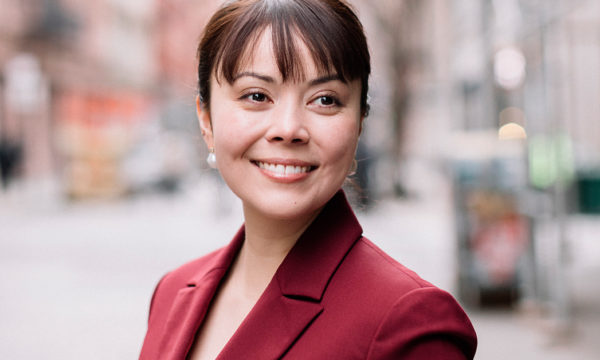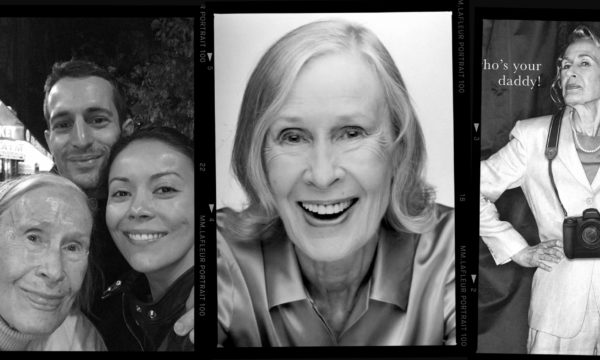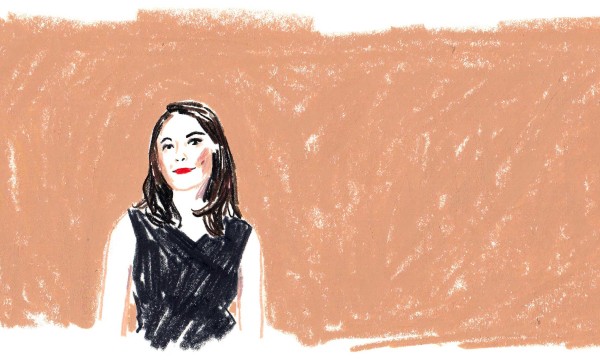Sarah LaFleur on Sexual Harassment and Building a Generational Bridge
December 08, 2017 | Filed in: Your Brain
Since the Harvey Weinstein scandal broke, it feels like a day hasn’t gone by without a powerful actor, director, journalist, politician, or businessman being accused of sexual harassment or assault. As I’ve followed the news, I’ve been struggling with my own feelings—and I’ve wrestled with how MM, as a company that supports women, can contribute to the conversation in a meaningful way.
If you’re wondering why it’s taken me this long to write something, it’s because I myself have felt caught between my contradictions: There’s what I used to do in response to sexual harassment (nothing), and what I feel I am now allowed to do, or rather, must do.
Here is my story: When I was growing up, I was assaulted several times on the subway by older men, and once, by a teenage boy my age. We were inside a crowded train, and he began to touch me under my skirt. Eventually, he took out his penis, and forced my hand onto it. We fought for a bit, but I didn’t dare scream, and no one else seemed to notice. I got off at the next stop to wait for the next train, and continued on my journey as though nothing had happened. I wasn’t angry; I was just shaken up. It never occurred to me to hold him accountable.
When I was 19, I landed my first internship. About a week into it, my boss’s boss’s boss (the CEO of the company) made lewd comments about my body in front of me and a few other male executives. I was standing when he said these things, and I distinctly remember wanting to curl up into a ball so no one could see the outlines of my body. When I told my mother about it, she said to me, “Sarah, that’s nothing. Let me tell you about the time when my boss told me that he wanted me naked on the dinner banquet instead of the ice sculpture.”
This was not the response I expected. My mother is a courageous woman who doesn’t tolerate fools, and I assumed she would tell me to talk back to him or take it to HR. But no. This was 2003, and her advice, from one professional woman to another, was this: Learn to take it on the chin. Instead of fighting him, pity him. If you fight, you won’t last, and we, as professional women, owe it to ourselves to make it. That’s been the advice to women for decades from many successful women who’ve paved the way. If you are ambitious and serious about your career, you need to grow a thick skin in order to survive.
For women of my mother’s generation, this strategy—the equivalent of quietly switching subway cars without causing a fuss—was essential to their success. There were far fewer support systems for women who came forward, and for most, the professional cost of speaking up was simply not worth it. It could be career-ending. Women found ways to come together and support each other, but, as Maureen Sherry, a former managing director at Bear Sterns, discussed in the New York Times, it was a behind-the-scenes “whisper network.”
Four years after my mother gave me that advice, I had a temporary job as the assistant to the director of the annual opera festival in southern France. At our first meeting, the director (who must have been in his forties) began saying that he wanted to date me as he fondled my knees. I was disgusted, but again, more than anything, scared. When I ran to the woman who helped arrange the job for me—a smart, warm Scandinavian in her thirties—she smiled and said: “This is France, Sarah. This kind of behavior is unfortunately quite typical.” Did I want the job or not?
This time around, I decided that I did not, and I left town.
As I look back on these experiences from within the context of the recent sexual harassment scandals, it is clearer to me than ever: My generation needs to write our own rules for how we fight harassment in the workplace. I have nothing but respect for the women that have come before—my mother, and others. They learned how to navigate at a time when the cards were always stacked against them.
Now, I see that changing, thanks to those women, and to the recent wave of incredibly brave women who said “enough is enough.” Because of them, I now have the opportunity to speak up and share my story publicly—and not through a whisper network. Perhaps more importantly, I feel the need to speak up in support of the other courageous women who came forward to let them know that they are not alone.
There is power in numbers. You might think, “What difference does it make whether 57 or 58 people accuse Harvey Weinstein?” It does. With each person who speaks up, you mitigate the risk of destroying the careers of the 57 women who came before you. You’d rather be one out of 58 than one out of 57. When you speak out, you give other whistleblowers credibility—you help save another woman’s career. It’s for that reason that I have decided to say: #MeToo.
This problem will not be solved overnight, but I am optimistic that my generation can build an essential and enduring bridge between my mother’s generation (who felt they had no choice but to keep quiet) and the next generation (for whom sexual harassment will be something you can hold people accountable for). As the generation in-between, we have work to do, and it will not be easy.
At MM.LaFleur, our staff is 76% female. Our male colleagues inspire me every day with their commitment to our mission of celebrating female professionals. We’re a young team, but we’re building a new normal where both genders work together to create an environment of equality and respect. This is a crucial moment for all of us. With compassion for past generations and with hope for the future, I am determined to be part of the generation that speaks up so that women can thrive, rather than just survive. All of our careers depend on it, and we are all in this together.
We’d love to know: How would you like to see MM.LaFleur express our solidarity and participate in this movement? Send your suggestions to action@mmlafleur.com. We’re eager to hear from our community on this important topic.








